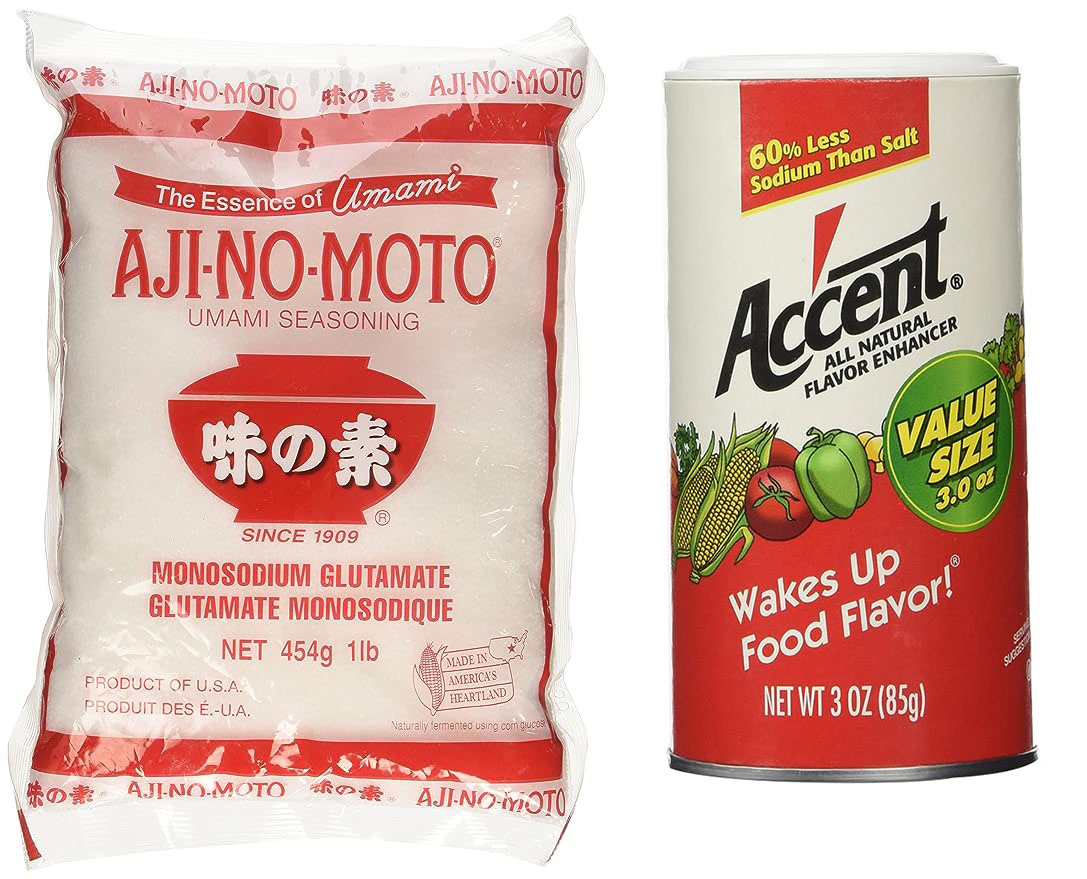Monosodium glutamate, or MSG, is a popular flavor enhancer that has gotten an essentially undeserved bad rap on the health front (see here). One more twist to this is the truly bizarre idea that MSG is somehow related to gluten, the protein found in wheat and some other grains that causes nasty reactions in celiacs and others with a gluten sensitivity. Nope, the two are completely unrelated. Perhaps the confusion stems from the two terms being somewhat similar: GLUTen and GLUTamate. A food may contain both gluten and MSG, of course, but that’s a different matter.
Tag: MSG
Foods Labeled “No MSG Added” Contain no MSG
This is legal but somewhat deceptive labeling on the part of manufacturers, likely because some people try to avoid MSG (but see below). Check the ingredients–if they include hydrolyzed soy (or vegetable) protein (HSP), then you’ve got MSG. Seems that MSG is an unavoidable byproduct of the manufacture process for HSP and in fact is the main reason that HSP is added to foods. Let’s face it, there’s no denying that MSG makes many foods taste better.
So why isn’t MSG on the label? It seems that it is not required to list things that are “ingredients of ingredients.” For example, if a product contains milk, the ingredient list does not need to say “milk proteins,” and the same for anchovies and salt.
Now onto the sidebar. Why do some people want to avoid MSG? There’s this fantastical idea that MSG is bad for one’s health, for which there is precisely zero evidence. And some claim to get “Chinese restaurant syndrome” from MSG, a phenomenon that seems to be purely psychological. You can read more here.
MSG is Bad for You and Causes “Chinese Restaurant Syndrome.”
MSG, or monosodium glutamate, is an amino acid that was originally isolated from seaweed over 100 years ago. It was found to provide a flavor that was neither sweet, salty, sour, or bitter (the 4 traditional basic tastes). This savory taste, called umami, is not really a flavor in itself. Rather, MSG makes food taste better—it is a flavor enhancer. It rapidly gained popularity as an additive in many restaurant and processed foods.
Then came “Chinese restaurant syndrome,” so-called because people would complain of various symptoms (headache, drowsiness, palpitations, and others) after eating at Chinese restaurants, where MSG was a popular additive. Subsequent to this, a raft of scientific studies failed to turn up any shred of evidence for a health effect of MSG, and in fact people who vociferously claimed to be MSG-sensitive have proven unable, in double-blind studies, to reliably tell whether food has MSG in it. Plus, there’s the fact that many cheeses, seaweed, and tomato paste, among other foods, have high levels of glutamate and no one gets a “syndrome” from them. So, stop worrying about MSG and enjoy your lo mein!
